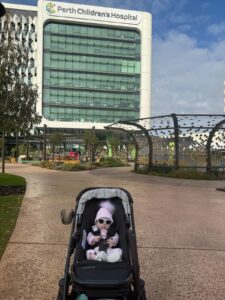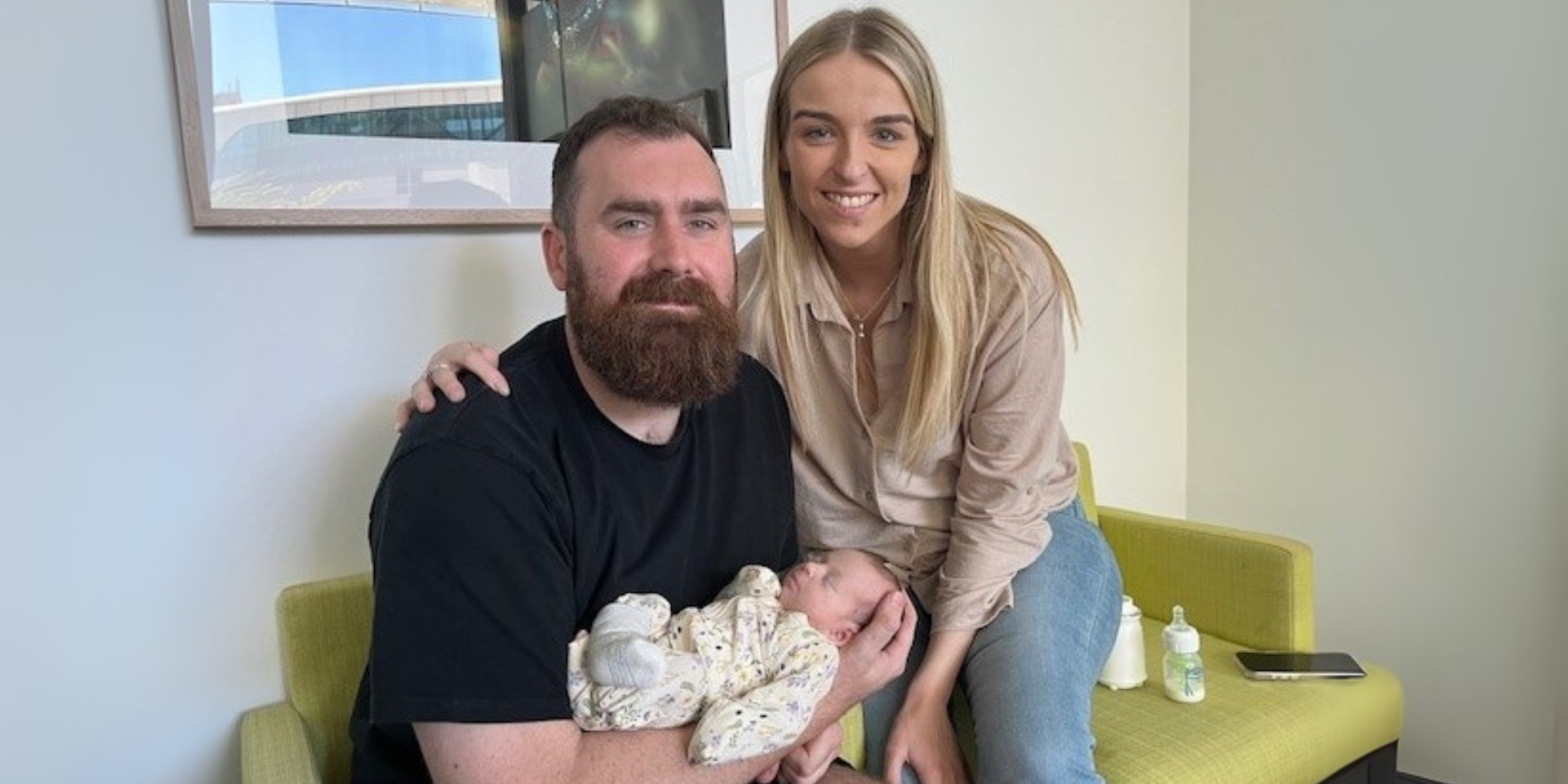Dan and Bec were overjoyed to find out they were expecting a baby girl and join their close circle of friends in becoming parents.
For Bec, the pregnancy went smoothly; however, during a standard check-up a week before the due date, it was found that their daughter had stopped growing. The medical team monitored her closely and ultimately decided to induce labour. However, due to an elevated foetal heart rate, Bec had to have an emergency caesarean.
Their daughter Samantha was born at St John of God Subiaco Hospital on Friday, March 28 2025, weighing 2.2kg. Small enough to warrant NICU admission, but instead, Samantha was brought to the ward to be with her parents after taking to oxygen quickly.
Dan and Bec noticed red flags with Samantha’s feeding and, after multiple attempts, firmly advocated for her transfer to the NICU where she was closely monitored by a team of nurses. One of which, noticed that Samantha was showing subtle signs of seizures.
In the early hours of Monday morning, a paediatrician asked Dan and Bec for permission to monitor Samantha’s brain. They immediately went to see Samantha in the NICU, where the doctors were already arranging for her to be taken to Perth Children’s Hospital (PCH) via the Newborn Emergency Transfer Service (NETS WA). Dan and Bec followed closely behind once Bec herself was discharged from the hospital.
Within hours of arrival at PCH, Samantha received a range of tests including MRI, EEG and ECG. By 4pm that same day, Dan and Bec were given a diagnosis: Samantha had a middle or left middle cerebral artery stroke, which could have occurred two weeks before her birth, during the delivery or after she was born.
Dan and Bec described this day as the “worst of their lives.” As first-time parents, they were already feeling stressed about the unknowns of bringing their baby home but now they had to grapple with understanding the world of disability. Their preconceived ideas of strokes and the impact they can have, made them even more worried about Samantha’s future.
While overwhelmed, Dan and Bec were reassured by the high level of care and support that they received at PCH. A nurse suggested they visit Kiind at the Family Resource Centre. There the Kiind hospital support team provided Dan and Bec with practical support and
understanding, as well as a welcome gift of coffee vouchers and a handmade quilt.
Bec and Dan found that Kiind’s services aligned with their proactive parenting philosophy. They were eager to ask the Kiind team questions and learn as much about disability as possible, so they could lock in supports for Samantha quickly. As Dan put it,
The more effort you put in now, the more chance she has to reach her full potential.
The Kiind team talked Dan and Bec through childcare options and early intervention, supported by Kiind’s information resource ‘First Steps’ which walks families through the first stages of diagnosis. As Bec said, receiving this information felt like a “massive weight had been lifted.”

Amongst these appointments, the young family still make time to visit Kiind at the Family Resource Centre. Both Dan and Bec say it’s important for families to have an opportunity to escape from the clinical environment of the hospital,
There’s not that many faces in the hospital that you could just go and sit with and have a conversation. We learned about how the workers at Kiind have kids with disabilities themselves, and so they’re invested in what they do. That makes you feel more comfortable in starting that conversation. If you’ve got questions, you know that they’re always there for you.
Parenting can be a stressful journey for first timers. For Dan and Bec, those fears are made more complex, not knowing how Samantha’s stroke will affect her development as she gets older. However, thanks to the support and guidance they received, Dan and Bec are now armed with the information and strategies to support Samantha’s needs, along with a new-found wisdom of taking every day one at a time, so they can simply enjoy being with their shy yet cheeky Samantha.






